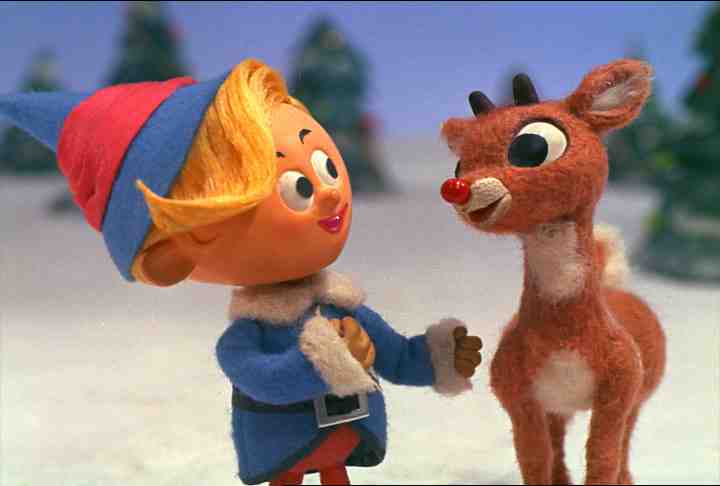
Rudolph the Red-Nosed Reindeer was on TV last night. It’s a tradition even older than I am to watch this mid-1960s bit of Americana, and it reminded me how much of Christmas is really gay — and also how some of the older shows are quite closed-minded and politically incorrect now. Consider this:
• The story of Rudolph is the story of someone who, because of his flamboyance (literally — he’s a flamer) is immediately ostracized by his family and community, and bullied by not only his peers but adults. Worse among these bigots: Santa Claus, who is portrayed as judgmental and in today’s world would probably have advocated “don’t ask, don’t tell” and would condemn its repeal.
• The Isle of Misfit Toys is a collection of gay-ish creatures, from Charlie in the box, who lisps more than Chris Krok on a rant, to the polka-dotted elephant to Dollie, who seems to have nothing on the surface wrong with her (implying she may be damaged in a deeper way, i.e., she’s lesbian. Read the signs, people!).
• Hermie and Yukon Cornelius are clearly gay lovers. The Abominable Snow Monster strikes me as a sloppy bottom, especially once his teeth are pulled (that’s when he takes up a career as a decorator).
• Santa’s transformation (and that of the others) only occurs once Rudolph proves he has some value — a skill no one else has. This strikes me as having cognates in the stop-loss policy that kept useful gays in the military only until suitable straight replacements could be found.
And this isn’t the only one — don’t even get me started about Snow Miser, Heat Miser and Prof. Hinkle.
Ultimately, I think shows like Rudolph are empoweringly pro-gay, despite employing stereotypes to achieve a message of inclusion. But I worry that the messages may be lost to some. Just remember: You heard it here first.












